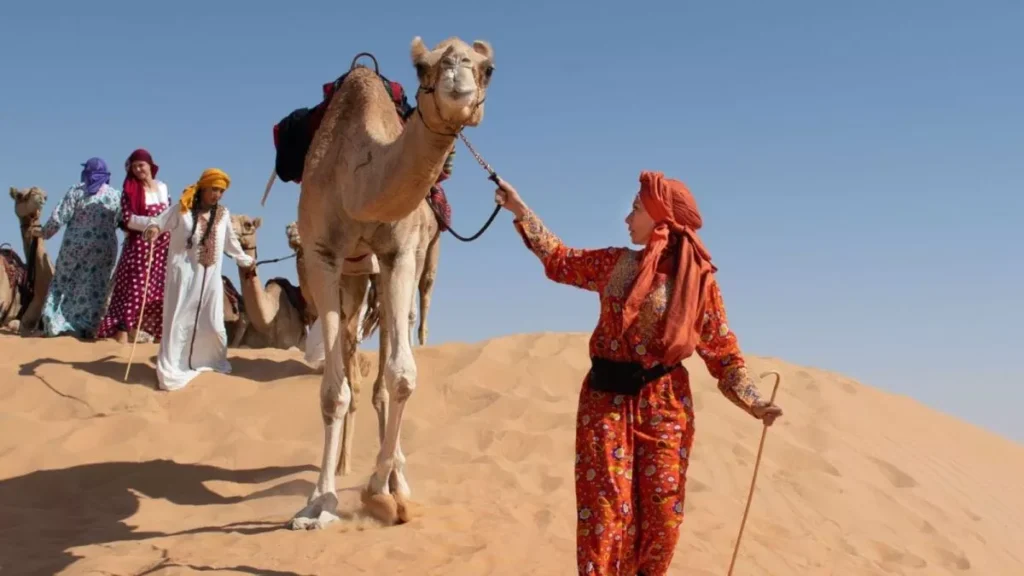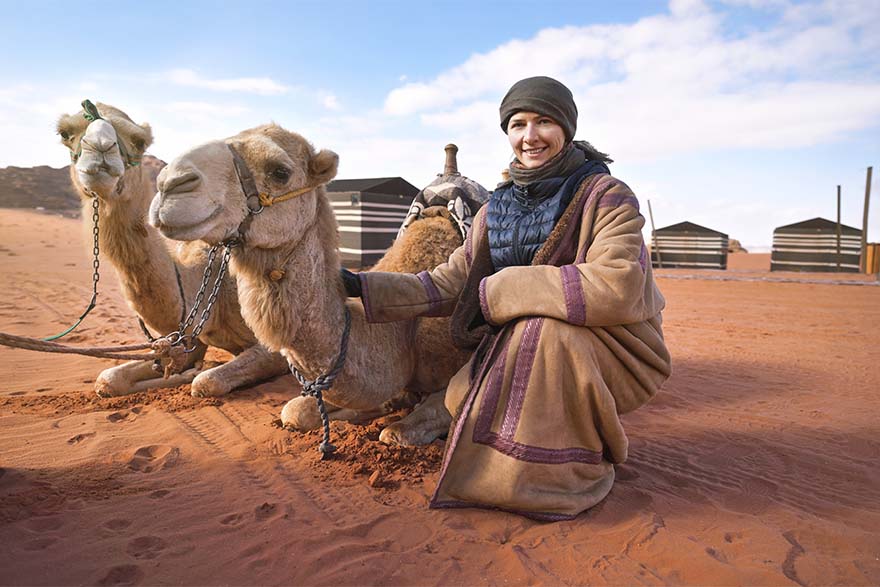The Timeless Bedouin Spirit
Kuwait, a nation known for its modern skyline and vibrant economy, carries within it the echoes of an ancient past. Long before the bustling cities and technological advancements, Kuwait was shaped by the Bedouin way of life. These nomadic communities, with their deep respect for the desert, family, and traditions, laid the cultural foundation that continues to influence the country today. The values, rituals, and social practices of Bedouins are not relics of history; they live on in modern Kuwaiti society, subtly guiding behaviors, attitudes, and even policymaking.
The Bedouin influence in Kuwait is a testament to the resilience of tradition in a rapidly changing world. Understanding this influence allows one to see how the past informs the present and shapes the national identity of Kuwait.
Preserving Social Values and Family Ties
One of the most profound impacts of Bedouin traditions on modern Kuwait is the emphasis on family and social cohesion. Bedouin life revolved around extended family units, where loyalty, honor, and mutual support were paramount. These values continue to thrive in Kuwait today, where family remains the cornerstone of society.
Modern Kuwaiti households, though technologically advanced and urbanized, still reflect the principles of respect for elders, strong family networks, and communal decision-making. Festivals, gatherings, and even business interactions often echo the communal spirit nurtured by Bedouin culture. This enduring emphasis on social harmony fosters a sense of belonging and continuity, bridging generations and reinforcing societal resilience.
Hospitality as a Defining Feature
Bedouins were renowned for their extraordinary hospitality, often welcoming travelers and strangers into their tents with generosity and respect. This tradition has become an integral part of Kuwait’s cultural identity. Today, Kuwaiti hospitality extends beyond family and friends, permeating business practices, tourism, and social interactions.
In modern settings, whether hosting a dinner or engaging in corporate hospitality, the principles of warmth, respect, and generosity remain evident. This cultural trait not only strengthens personal relationships but also enhances Kuwait’s reputation globally as a nation that values human connection and kindness.

The Influence on Language and Storytelling
The oral traditions of the Bedouins, including poetry, storytelling, and proverbs, have left an indelible mark on Kuwaiti culture. The use of eloquent language and metaphors in daily conversation, literature, and even media draws inspiration from Bedouin speech patterns and narratives.
Poetry, particularly the Nabati form, continues to be celebrated and preserved in Kuwait. Modern writers and artists often draw on these oral traditions to convey messages of morality, courage, and community. Through storytelling, Kuwaitis maintain a link to their heritage, ensuring that the lessons and wisdom of the desert remain alive in contemporary society.
Influence on Art and Architecture
Kuwaiti art and architecture also reflect Bedouin sensibilities. Traditional geometric patterns, motifs inspired by desert life, and the use of natural materials in design have been integrated into modern architecture and interior design.
For example, decorative elements in homes, public spaces, and even government buildings often include patterns reminiscent of Bedouin textiles and artifacts. This blending of tradition with modernity provides a visual reminder of Kuwait’s rich cultural lineage, creating a sense of identity and pride among its citizens.
Bedouin Ethics in Business and Governance
Bedouin traditions placed high importance on trust, honesty, and community welfare, principles that continue to influence Kuwaiti business practices and governance. Entrepreneurs and leaders often draw on these ethical foundations when negotiating, building relationships, and making decisions.
This influence is evident in the emphasis on fair trade, loyalty between business partners, and the prioritization of long-term reputation over immediate gain. By integrating these ethical standards, Kuwait ensures that its economic progress is not just material but also rooted in moral values inherited from its Bedouin ancestors.
Rituals and Celebrations: Linking Past and Present
Many of Kuwait’s national celebrations and cultural rituals have roots in Bedouin practices. Traditional dances, music, and ceremonies are performed during public events, weddings, and religious festivals, reflecting the nomadic culture of the desert tribes.
Events like these not only entertain but also educate younger generations about their heritage. Through these celebrations, Kuwaitis maintain a living connection to their Bedouin roots, ensuring that the richness of past traditions continues to inspire creativity, unity, and national pride.
Connection to Nature and the Desert
The Bedouins lived in close harmony with the harsh desert environment, developing deep knowledge and respect for nature. This connection has influenced modern Kuwaiti attitudes towards environmental conservation and sustainable living.
From the preservation of desert landscapes to the protection of native wildlife, Bedouin principles of balance and respect for natural resources guide contemporary policies and social consciousness. Kuwaitis today appreciate the desert not just as a backdrop for tourism but as a vital part of their heritage and identity.
Fashion and Cultural Expression
Traditional Bedouin attire, designed for both practicality and elegance in the desert climate, continues to influence Kuwaiti fashion. Modern clothing often incorporates elements such as flowing fabrics, embroidered designs, and modesty principles that were central to Bedouin dress.
Cultural events and even daily wear in Kuwait celebrate this fusion of heritage and modernity, highlighting a society that values its roots while embracing contemporary aesthetics. Through fashion, Kuwaitis express identity, pride, and continuity with the past.

Modern Education and Preservation of Heritage
Kuwait places a strong emphasis on education, and Bedouin traditions subtly shape the curriculum and cultural studies. Lessons in history, literature, and social sciences often incorporate Bedouin heritage, teaching students about resilience, ethics, and communal life.
Educational initiatives, museums, and cultural centers in Kuwait serve as hubs for preserving and sharing Bedouin wisdom with future generations. This commitment ensures that while the country moves forward technologically and economically, the values and stories of its ancestors remain integral to the nation’s identity.
Impact on Religion and Spiritual Life
Bedouin life was closely intertwined with spiritual beliefs and practices, emphasizing faith, moral integrity, and community rituals. These principles continue to influence religious practices in Kuwait, where traditions are integrated into daily life, social interactions, and national holidays.
Spiritual values rooted in Bedouin heritage guide interpersonal relationships, charitable actions, and public life. This connection reinforces moral conduct and a sense of purpose, contributing to societal stability and harmony in modern Kuwait.
Culinary Traditions and Modern Cuisine
The influence of Bedouin traditions extends to Kuwaiti cuisine, which emphasizes hospitality, generosity, and communal sharing of meals. Traditional dishes often feature ingredients that were staples for desert life, including dates, lamb, rice, and spices.
Modern restaurants and home kitchens alike celebrate these flavors, adapting recipes to contemporary tastes while maintaining the essence of Bedouin culinary practices. Food becomes not just nourishment but a celebration of culture, family, and history, connecting Kuwaitis to their heritage in every meal.
Influence on Sports and Physical Activities
Bedouin life required physical endurance, strategic thinking, and teamwork. These values have found their way into modern Kuwaiti sports culture. Activities such as falconry, horseback riding, and traditional games are celebrated and adapted into modern recreational and competitive sports.
Through these practices, Kuwaitis maintain physical fitness, teamwork, and a connection to their ancestral past. Sports serve as a living reminder of the resilience and discipline that defined Bedouin life, instilling these traits in younger generations.
Conclusion: A Living Heritage
The influence of Bedouin traditions on modern Kuwait is profound and multifaceted. From social values and hospitality to art, cuisine, and education, the legacy of these nomadic communities continues to shape daily life, national identity, and global perception.
Modern Kuwait is a dynamic blend of tradition and innovation, where the wisdom of the past informs the progress of the present. Bedouin heritage remains a source of pride, resilience, and inspiration, proving that even in a rapidly evolving world, the values of courage, community, and honor endure.
Kuwait’s journey demonstrates that tradition and modernity are not opposing forces but complementary elements, each enriching the other. By preserving and celebrating Bedouin heritage, Kuwait ensures that its identity remains strong, its culture vibrant, and its society united, forging a future grounded in the wisdom of the past.
Do follow Gulf Magazine on Instagram.
Also Read – Kuwaiti Architecture: Mastering Culture and Climate in Stunning Designs



